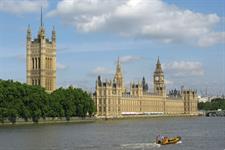A senior civil servant in the Department for Digital, Culture, Media and Sport has admitted the controversial involvement of accountancy firm PWC in allocating emergency covid funding was “overly onerous” in some cases.
Appearing before the House of Commons Public Accounts Committee yesterday, Sarah Healey, the DCMS permanent secretary, said the decision to have PWC review every allocation of the funding made by the National Lottery Community Fund had been changed so as not to include grants of less than £10,000.
But, in the session as part of the committee’s inquiry into government support for charities during the pandemic, Healy defended the involvement of special advisers in the allocation process for part of the government’s £750m charity rescue package.
She also defended the fact that four organisations with the lowest internal DCMS ranking were later selected to hand out the money.
In April last year, the government announced an emergency support package of £750m for the charity sector, £200m of which was given to the NCLF to help smaller charities survive the covid crisis.
The accountancy firm PwC was awarded a £1.4m contract to oversee the NLCF’s distribution of the funds, a move that was widely criticised at the time.
Meg Hillier, the chair of the committee and Labour MP for Hackney and Shoreditch, questioned why PWC had been given the contract, when the NCLF was “an experienced grant-giving body” with its own robust processes, suggesting it was “duplicative”.
Healy said the department had been under “severe pressure” and so had decided to bring in specialist support.
She said: “Ministers took a view that because this was such a high-value part of the package and because we were so keen to ensure that we were meeting the specific objectives in a fast-moving situation, they did want this extra review process to take place.”
But, she said the process had been changed “after a short amount of time” to exclude grants of less than £10,000.
She said: “We recognise that it was overly onerous as a review process when it was looking at grants under £10,000, and that is why we changed it.”
The government’s support package also included a £85m Community Match Challenge fund.
Hillier challenged the involvement of political special advisers in meetings to draw up advice for ministers on which organisation should receive money from the fund, asking whether DCMS officials had been “emasculated” by the political advisers overruling the decisions of civil servants.
Healy acknowledged the process had been “truncated” in a way that was unusual, to allow the funding to be distributed more quickly, but said it was perfectly normal for special advisers to be consulted.
But Hillier said she was “staggered” that special advisers had been so closely involved in the process, in a way she said she had not seen before.
“I would hope that there is some reflection about whether this becomes the norm because there is a danger to the body politic,” she said.
Alongside the NLCF, 20 organisations were involved in distributing elements of the Community Match Challenge – but four of the distributors chosen were among the lowest-scoring applicants, according to DCMS internal rankings.
The committee questioned why these organisations had been selected.
Healy replied that some of the funders were initially “indicated as potentially not eligible to be funded”, but that in discussion the minister had said “she wasn’t sure that the advice precisely matched her understanding of those organisations, so could we go away and check that information”, which Healy said was “a quite proper thing”.
She said that civil servants subsequently “did discover that actually those organisations were eligible to be funded under the criteria”.
But she said she did not want to give precise examples of what new information had come to light.
